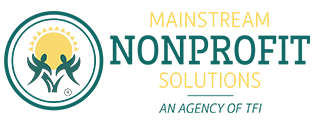The criteria for consulting with a nonprofit organization requires a number of skills to be successful. When training to be a consultant, the candidate should already possess a certain amount of experience with information technology.

Success and Goals
There are many nonprofits who hire volunteers, and some who hire employees to run the organization. These candidates often possess individual and team leadership capabilities. Further, the mission and success of a nonprofit are often laid out in how well the consultant works with them. Indeed, they need to complete deadlines and establish a network with donors.
In order to be a good candidate, many people who join nonprofits have experience working in other fields. For example, human resource management, business, healthcare, marketing, publishing, and some are technical and grant writers have experience. All use their creative skills to launch new ideas to add to the company’s objective plans.
According to Cairns, Harris, and Young (2005), “The term ‘action learning’ refers to the idea of achieving organization change and performance improvement through peer reflection and critical review of working practices. It is advocated as a means to build capacity by several writers, especially those who take an empowerment approach.” (Cairns, Harris, & Young, 2005, 877)
The Personality of a Consultant
The success of a growing consultant is the drive, ambition, and determination to be a lifelong learner. Many times consultants are always doing research that will bolster the confidence of stakeholders, patrons, and investors.
Being able to give time and energy to colleagues through continually sharing ideas and goals shows the most important traits of supportive employment habits.
Learn More About Training as a Consultant for a Nonprofit Organization
Consultants in nonprofits must be able to see the organization as a training process and a chance to network. New consultants can use their training as a time to share information gathered from their experiences in other fields. Also, to learn the internal context of how a nonprofit benefits the community. Contact us to learn more.

